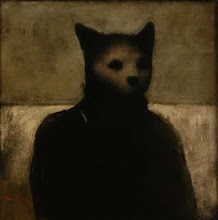Wednesday, February 12, 2014
Anger...
In the book, The Power of Myth, Joseph Campbell retells an old Japanese legend about a samurai who had "the duty to avenge the murder of his overlord." But, in the moment he was about to use his sword to strike down his adversary, the man spat in the samurai's face. "And (so) the warrior sheathed the sword and walked away."
Campbell explains how the warrior was angered by the act of spitting, and realized if he struck down the man in rage it would have become "a personal act." That was not what the samurai had come to do, says Campbell.
It rings of Luke Skywalker's temptation to strike down the Emperor--an act that would have altered Luke's fate forever, as the act would have been one based in anger and hatred. This would have made him as malevolent as the one he sought to destroy.
While emotion may be a useful and powerful thing, anger and fear can distort. They can blacken our hearts and create reactions not thought through with a rational mind.
Viewed historically (and on a larger scale), armies have been mobilized based on anger-inducing propaganda. After all, if there is only compassion for the other side in a conflict, what soldier would pick up a weapon to kill? What population would give consent to a war that had no villain?
I'm not saying what wars have been justified and which have not. I'm just saying that the masses can be swayed either way by the right use of media. And often, anger is the emotion targeted in order to influence large groups of people.
On an individual scale, anger can also make us do things we shouldn't. Such emotions can cloud the mind. And even the most passive soul can be angered by something.
I guess it is about whether or not we strike out at others when we become angry, or whether we try to tame the emotions and wait until we can think clearly once again.
Subscribe to:
Comments (Atom)
